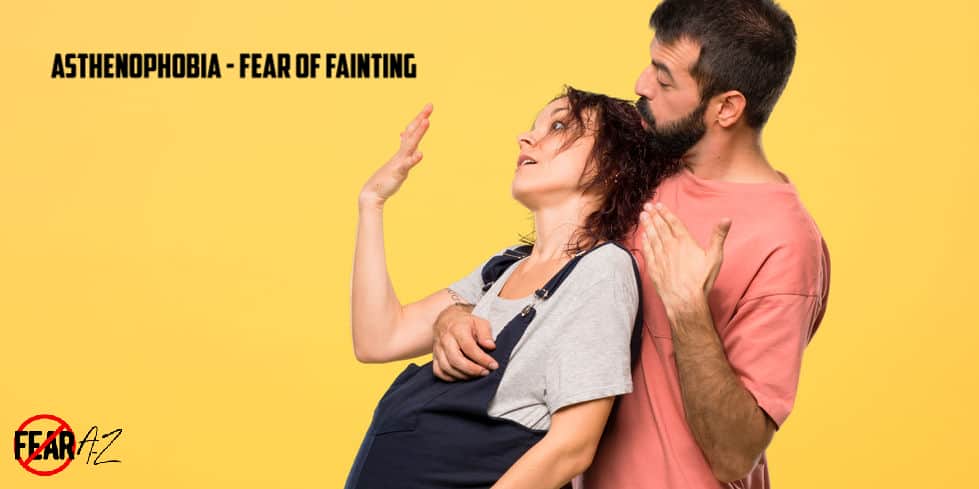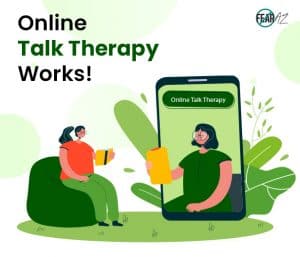Share This Article
The Fear of Fainting, Not Rare but Real
While at the mall, are you suddenly overcome with fear that you might faint when there’s no apparent reason for that to happen? Do your feelings of panic in the moment escalate your fear of fainting?
Or, while behind the wheel—out of the blue—has a fear of fainting ever kicked in? Have you hit the brakes and waited for the fear to pass? Again, there is no apparent reason for you to faint aside from your anxiety perhaps.
You, yourself, might find what you are feeling and experiencing to be weird, alarming, or scary. And it is. Most likely, what you are suffering from is asthenophobia.
When your fear of fainting sets in, you have to stop whatever you’re doing and wait for the fear to subside. Often, as an aftermath of your fear attack, you end up going home rather than completing the day’s tasks.
People within your circle might not understand what you’re experiencing. And it’s difficult for you to explain.
Talking about something you don’t fully understand is hard. People may understand the more common phobias such as a fear of spiders, heights, or enclosed spaces, but a fear of fainting is almost unheard of. People might dismiss it as an exaggeration.

Don’t be discouraged though, because those familiar with phobias will understand. And what’s more, there’s help in overcoming your fear. It is possible to control the fear and your reaction to it. Learning more about your condition is the first step in regaining control over it.
What Causes the Fear of Fainting?
Unfortunately, there is no clear cause of the fear of fainting and the ensuing panic.
But it appears that genetics and environmental factors could play a significant role in the development of any phobia. An example is if your family has a medical history of anxiety disorders or specific phobias. When you have household members with a phobia of fainting, you have an increased risk of developing the same condition.
Another reason would be a previous traumatic experience. For example, you or someone you know had a fainting episode that resulted in dire consequences. Ever since the event, the fear of fainting has stuck with you.
No matter the reason, because of your phobia, you associate fainting with extreme danger. Anytime you are triggered, your anxiety escalates.
What Is the Fear of Fainting?
Asthenophobia is considered a specific phobia. Most who have this condition know that the fear is irrational. Still, when triggered, people with asthenophobia experience overwhelming apprehension.
In extreme cases of asthenophobia, even the mere thought of fainting is enough to trigger panic.
Symptoms of Asthenophobia
All phobias, including yours, need attention. Depending on the severity of your condition, you can experience several symptoms, both physically and psychologically.
The aftermath of your symptoms can often leave you overwhelmed and at times unable to function. That’s why individuals with asthenophobia strive to avoid triggers to their condition. Doing so, however, results in limiting the activities they pursue. This may lead to a lower quality of life.
Below are the physical and psychological symptoms that sufferers of this phobia may experience. You’ll notice many of these symptoms, if not all, are also those that appear in other forms of phobias.
Physical Symptoms
- Disorientation
- Dry mouth
- Feeling faint
- Headaches and dizziness
- Hot flushes or chills
- Hyperventilation
- Nausea
- Numbness or pins and needles
- Rapid heartbeat
- Ringing in your ears
- A rise in blood pressure
- A sensation of butterflies in the stomach
- Sweating and trembling
- Shortness of breath
- Tightness in the chest
Psychological Symptoms
- Anger, irritability, or mood swings
- Anxiety and fear
- Confusion
- Difficulty in concentrating
- Fear of losing control
- Fear of fainting
- Feelings of dread
- Feeling sad or hopeless
- Feeling disconnected
- Fear of dying
- Fear of getting hurt
- Guilt, shame, or self-blame
- Withdrawing from others
How to Deal with Asthenophobia?
This phobia may cause you to make adjustments in your life. It has no fixed triggers, and you can’t schedule your feelings of panic. As such, asthenophobia is disruptive and can have an impact on your work and social relationships.
You don’t need to settle for this kind of lifestyle. You can take control of your life. Several options are available to help you deal with your fear of fainting so you can enjoy the better things life has to offer.
Things You Can Do to Help Yourself
Even if you’re surrounded by friends and family who are supportive and offer encouragement, the effects of your phobia can only be felt by you. If you’ve had it for years, you’ve most likely established a pattern and have identified your most common triggers.
In this case, learning several self-help techniques will go a long way as you cope with your condition.
One of the things you can do is make a list of your most common triggers and how you react to them. Which among your triggers cause you to feel dizzy to the point of actually fainting? Which trigger gives you the least symptoms and side effects?
Once you’ve identified these triggers, you can then focus on improving your overall health. Find activities that will benefit your physical and mental well-being. By making yourself stronger, you’ll be able to hold your ground. Yes, you may still have incidents of fear, but you won’t go into hiding anymore.
Professional Treatment for Asthenophobia
Talking with a therapist about your condition is one of the hardest steps in getting professional treatment. Bearing your soul, weaknesses, and fears to someone you just met is rather difficult—with or without a phobia.
During this professional treatment, expect some counseling and other forms of talk therapy. Some of the techniques presented to you are cognitive behavioral therapy, exposure therapy, dialectical behavior therapy, yoga, and mindfulness-based stress reduction.
Looking into your lifestyle and making changes might also be in order. These could include checking your medication’s side effects (if you’ve been prescribed one) and making changes to your diet (for example, reducing your caffeine intake).
Learning to Cope with Asthenophobia
With phobias such as the fear of fainting, a cure is not yet available. Even with therapy sessions, expect that your phobia will trigger from time to time. The available treatments for specific phobias are intended to improve quality of life. The goal is to not have phobia limit you in pursuing activities you enjoy. With self-help and professional help, you have better control over your fear and reactions. The fear may always be there, but you’ll have the tools you need to cope.




